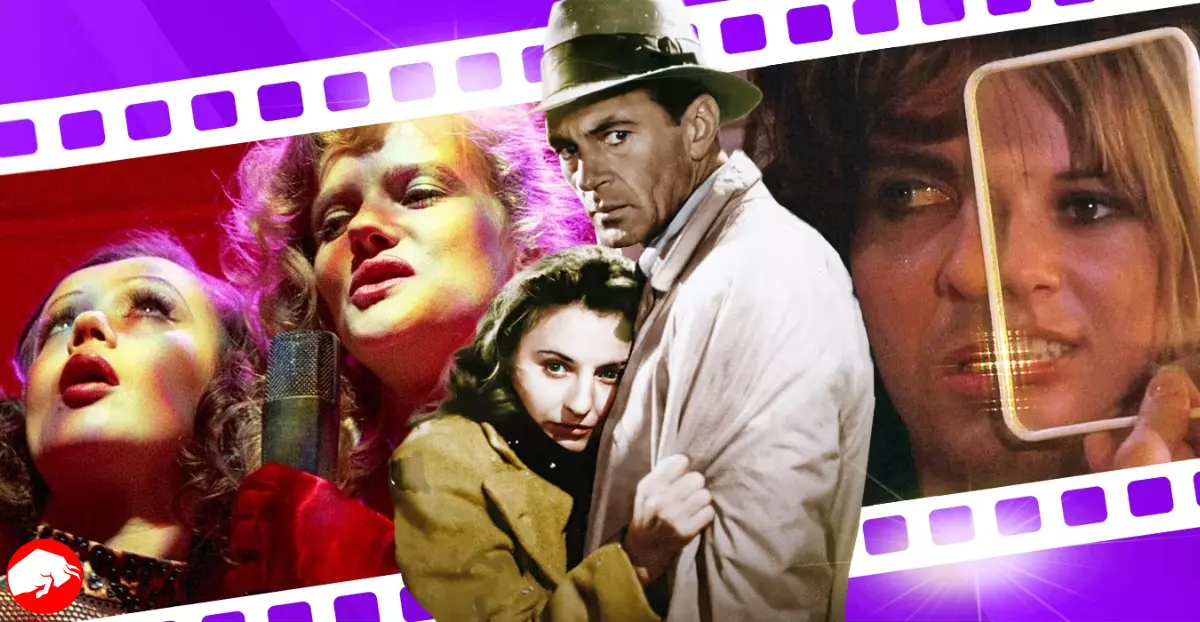The 1970s ushered in a golden era of filmmaking, characterized by audacious and unprecedented movies that challenged the norms of storytelling. This decade brought us epic tales of fantasy like the original Star Wars trilogy while keeping audiences grounded with films depicting reality in its raw form. Amidst these well-known classics, numerous underrated movies from the 70s went under the radar.
Let’s delve into these hidden cinematic treasures inspired by Reddit users’ suggestions.
The Sentinel (1977): A Harrowing Journey Through Solitude and Paranormal Intrigue
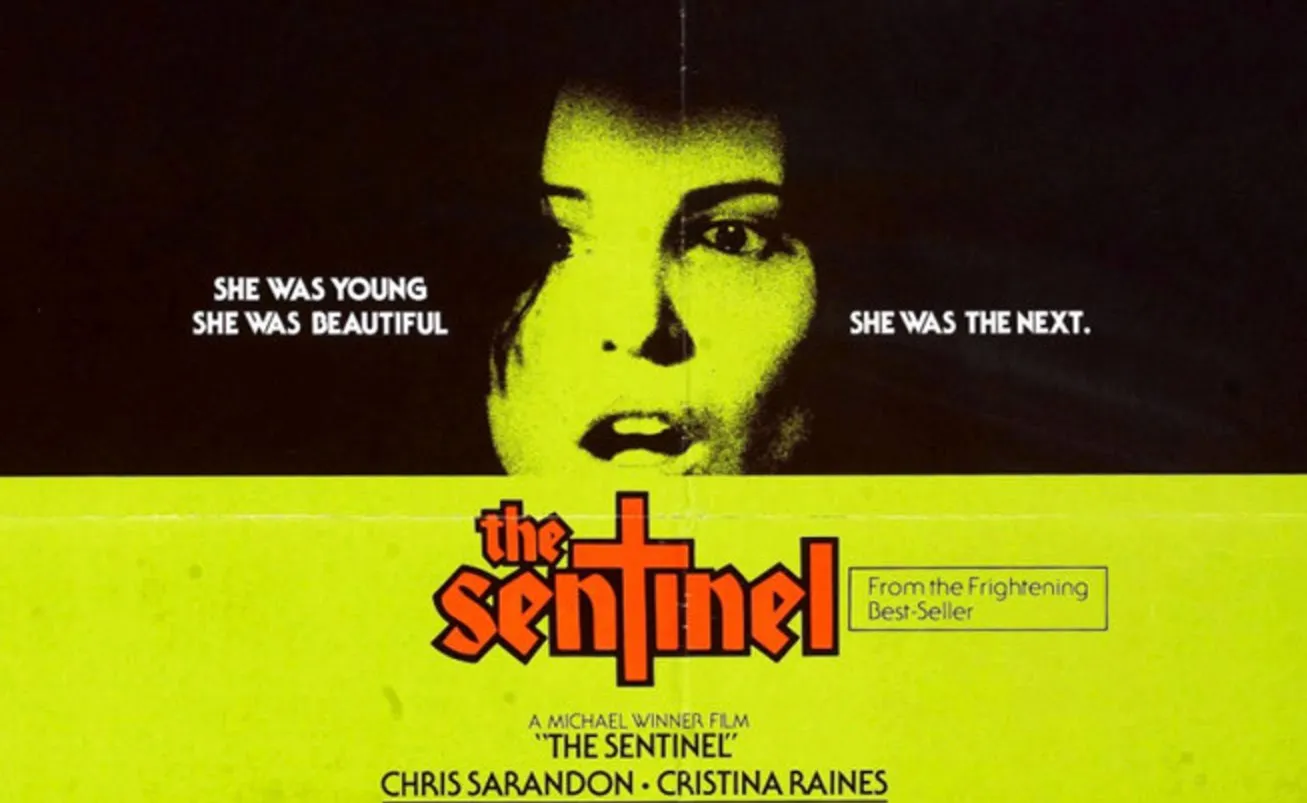
Helmed by the visionary director Michael Winner, The Sentinel is a bone-chilling horror film that dramatically narrates the spine-tingling experiences of a fashion model named Cristina Raines. Raines becomes entangled in a terrifying web of paranormal incidents in this cinematic horror masterpiece that unfolds in her newly acquired abode.
The Sentinel, characterized by its haunting ambiance and the eerie portrayal of solitude, serves as an immersive tour de force into the supernatural realm.
The story’s narrative, deftly constructed by Winner, brilliantly weaves a complex tapestry of suspense, unease, and the inexplicable, effectively keeping the viewers at the edge of their seats. Its distinctive approach to horror leaves a lasting, indelible mark not only on the canvas of 1970s cinema but also in the minds of its viewers.
Through its terrifying plot and eerie atmosphere, the movie brilliantly explores the themes of solitude and mystery, instilling an intense dread that gradually unfurls and consumes the audience.
One cannot ignore the tremendous impact The Sentinel has had on its viewers. An anonymous Redditor testified to its undying charm and fear factor, recalling their experience with the film.
“Great freakin movie. Scared the crap out of me as a kid,” they wrote.
This particular comment echoes the sentiments of many other viewers enthralled and petrified by the film’s masterful storytelling and atmospheric horror.
This chilling piece of cinema isn’t merely a horror film; it is a deep, unnerving exploration into the mysteries of the supernatural and the terrifying consequences of solitude. The Sentinel continues to send shivers down the spines of its viewers, remaining a compelling and often underappreciated staple in the annals of horror cinema.
Shampoo (1975): A Brilliantly Executed and Razor-Sharp Social Satire
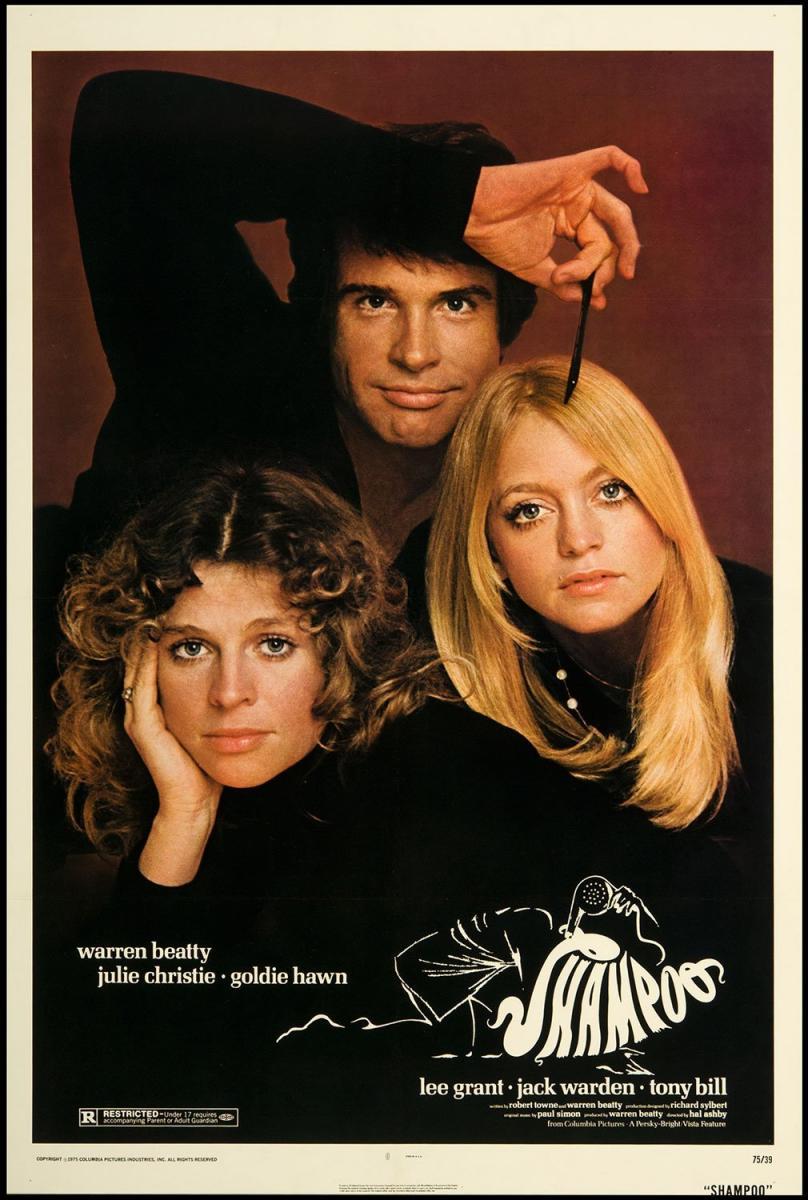
Crafted with a discerning eye and a sharp sense of humor, Hal Ashby’s Shampoo is an audacious exploration of the era’s love, profession, and social mores. The film stars the incredibly charismatic and versatile actor Warren Beatty, whose dynamic performance elevates the story to new heights.
It presents audiences with a satirical and humorous lens into the life of a Beverly Hills hairdresser named George Roundy, played with relatable charm by Beatty. As he navigates the labyrinth of love and the trials of his profession, the audience is drawn into his world, replete with comedic mishaps and dramatic confrontations.
Labeled as “underrated” and hailed as “one of the best movies of the decade,” Shampoo has attracted commendation and admiration from cinema enthusiasts. The movie’s magnetic pull owes much to its cleverly crafted dialogues, spot-on comic timing, and dissection of the socio-cultural fabric of the 1970s.
The narrative skillfully weaves together threads of romance, personal ambition, societal norms, and the pitfalls of fame, creating a rich tapestry that continues to captivate audiences today.
Redditors, known for their frank and discerning reviews, praise the film’s engaging performances and the notable soundtrack as a rhythmic backdrop to the narrative. The commendable soundtrack, created by none other than the renowned Paul Simon, enhances the viewing experience with its melodic undertones.
The music complements the unfolding drama and provides an auditory commentary that deepens our understanding of the characters and their predicaments.
In Shampoo, Ashby has masterfully created a cinematic time capsule that encapsulates the unique spirit of the 1970s. The movie’s undeniable charm, razor-sharp social satire, and memorable performances continue to resonate with audiences, thus affirming its status as a timeless classic.
As a viewer immerses themselves in this narrative, they will find themselves laughing, contemplating, and appreciating the cinematic brilliance of this underrated gem.
Silent Running (1972): A Pioneering Sci-fi Odyssey Exploring Environmental Preservation and Human Survival
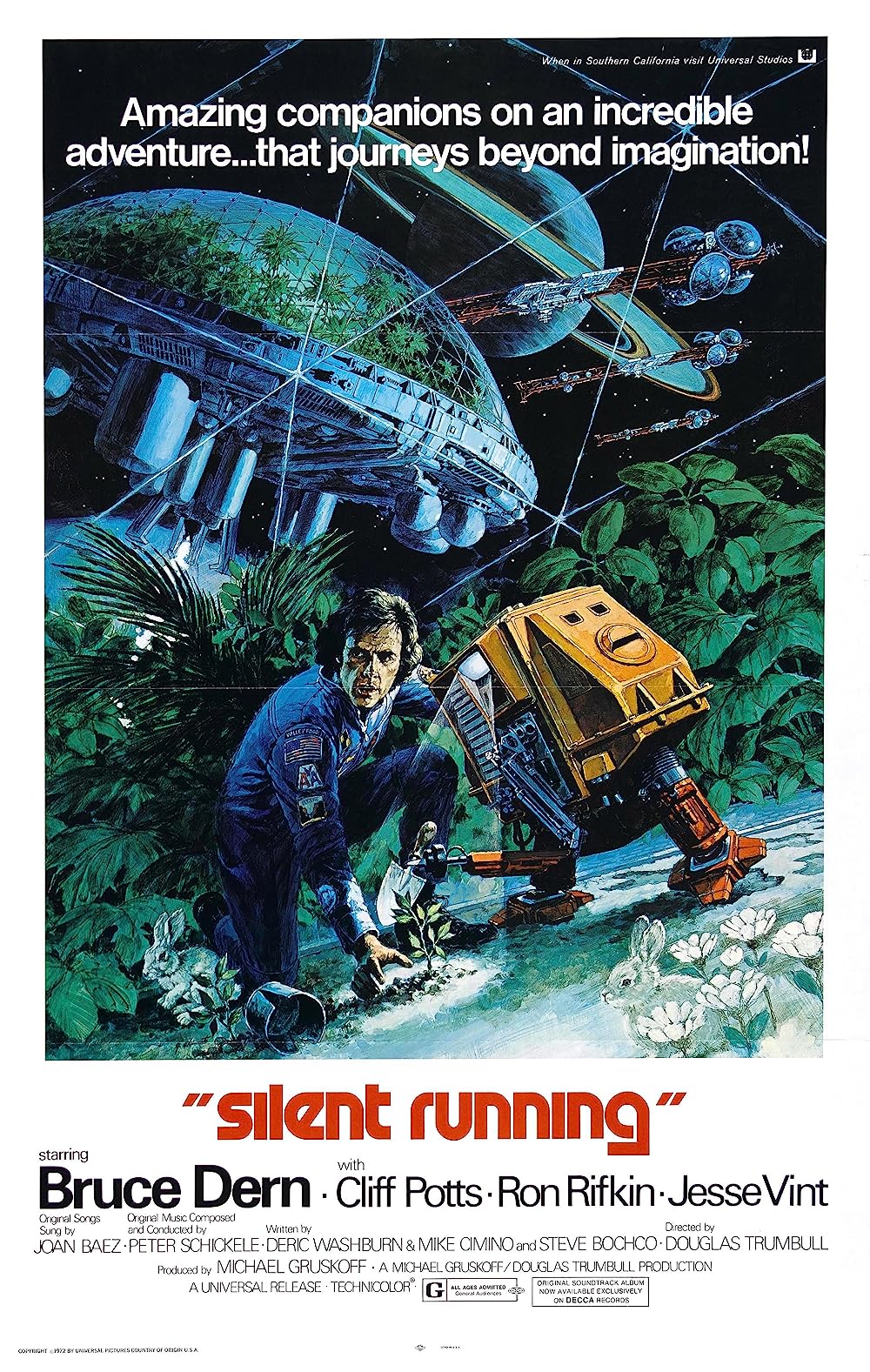
Douglas Trumbull’s Silent Running transports viewers into an intriguing world of interstellar exploration that masterfully intertwines a poignant narrative with a significant environmental message. Much more than a traditional science fiction tale, the film journeys through space, spearheaded by the principled and passionate ecologist Freeman Lowell, portrayed with admirable depth by Bruce Dern.
This narrative odyssey, steeped in the urgency of environmental preservation and sustainability, leaves an enduring impact on its audience.
Silent Running has garnered a considerable fanbase over the years, with a significant portion of its admiration stemming from its prophetic cautionary message about environmental neglect. In the film, the future of botanical life on Earth hangs by a thread, with greenhouses aboard space stations acting as the last bastions of ecological diversity.
Against this backdrop, Lowell’s mission to safeguard the future of Earth’s plants unfolds, lending a tense and emotional texture to the storyline.
One Reddit user succinctly captures the film’s heart and central themes, describing Dern’s character as the “captain of a spaceship Ark of trees that represents human survival.” This comment aptly summarizes the significance of Lowell’s mission and the metaphorical ark he is entrusted with.
The ‘spaceship Ark,’ as the user defines it, symbolizes not only a haven for Earth’s flora but also a beacon of hope for the continued survival of humankind, thus underscoring the profound interconnectedness of all life forms.
Further amplifying its unique charm, Silent Running introduces audiences to a band of helpful robots, endearing themselves with their unwavering dedication to the mission and their interactions with Lowell. Their contribution to the storyline deepens the narrative complexity, adding a layer of sentient artificial intelligence that further enhances the movie’s appeal.
Through its profound message and a compelling narrative set against the expansive canvas of space, Silent Running has successfully cemented its place as a remarkable work in science fiction. With its profound exploration of the relationship between humanity and nature, the film continues to inspire discussions and reflections on the importance of environmental preservation.
As viewers voyage through this futuristic odyssey, they are reminded of the timeless truth about our responsibility towards the planet and the critical importance of maintaining the delicate ecological balance.
Scarecrow (1973): A Captivating Road Movie Steeped in Heart and Humanity
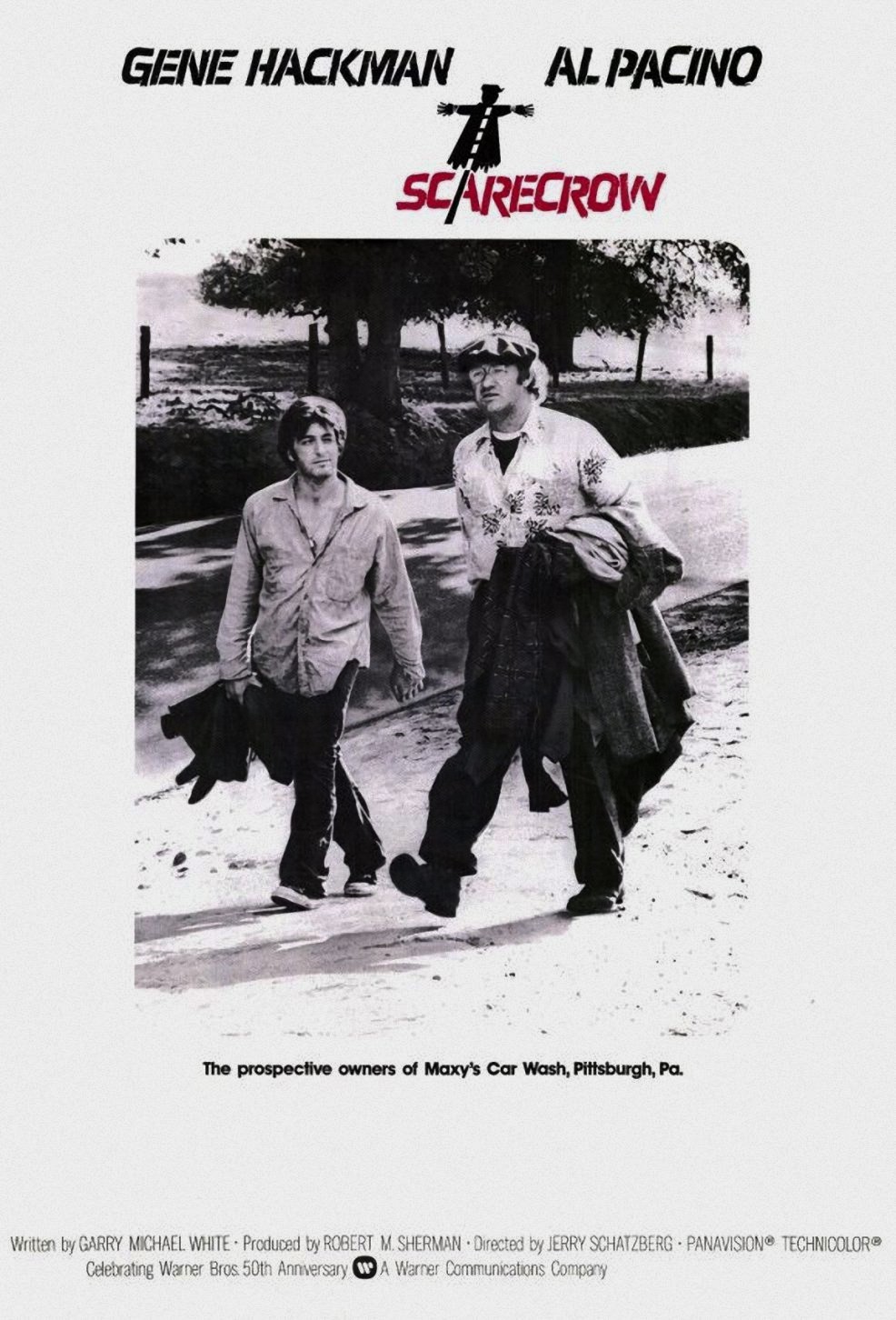
Directed by Jerry Schatzberg, Scarecrow captures the essence of human connection and paints an intricate portrait of life’s unpredictability through the prism of a road movie. The film brings together Hollywood heavyweights Al Pacino and Gene Hackman in lead roles as two drifters, embarking on a heartfelt exploration of their evolving friendship, mutual empathy, and the profound insights they glean from their shared experiences.
The movie’s heart lies in the compelling camaraderie that blossoms between the central characters, played by Pacino and Hackman. Their journey across the American landscape, punctuated by unexpected incidents, humorous encounters, and contemplative moments, forms the crux of the narrative.
The simple premise is elevated by the thoughtful script and the nuanced performances of the lead actors, rendering an intimate, humanistic exploration that has resonated with audiences since its release.
Praised as “stellar” and “lesser-known” by the Reddit community, Scarecrow is more than just a road film; it’s a profound exploration of companionship and self-discovery. The narrative provides viewers with a captivating journey into the lives of two complex individuals and subtly lays bare the rawness of human emotions.
Their friendship, steeped in shared hardships, personal revelations, and earnest humor, is a powerful testament to the movie’s ability to tap into the human condition’s intricacies.
Further enhancing the film’s allure are the stunning visuals of the American landscape, from the sprawling highways to the quaint towns our protagonists traverse. These vivid backdrops serve as silent yet eloquent spectators to the protagonists’ evolution, encapsulating their journey’s various moods and textures.
Scarecrow offers a cinematic experience that transcends the traditional boundaries of a road movie. It delivers a rich tapestry of emotions and experiences. While the journey of its central characters might be steeped in their struggles and dreams, it speaks to a larger, universal human experience.
These elements work together to create a compelling, passionate, and layered movie, making Scarecrow an enduring masterpiece in character-driven cinema. Its relative obscurity only enhances its appeal for viewers seeking unique cinematic narratives that stir the soul and provoke thoughtful introspection.
Deathdream (1974): A Haunting Tale of a Soldier’s Return Weaved in Profound Horror
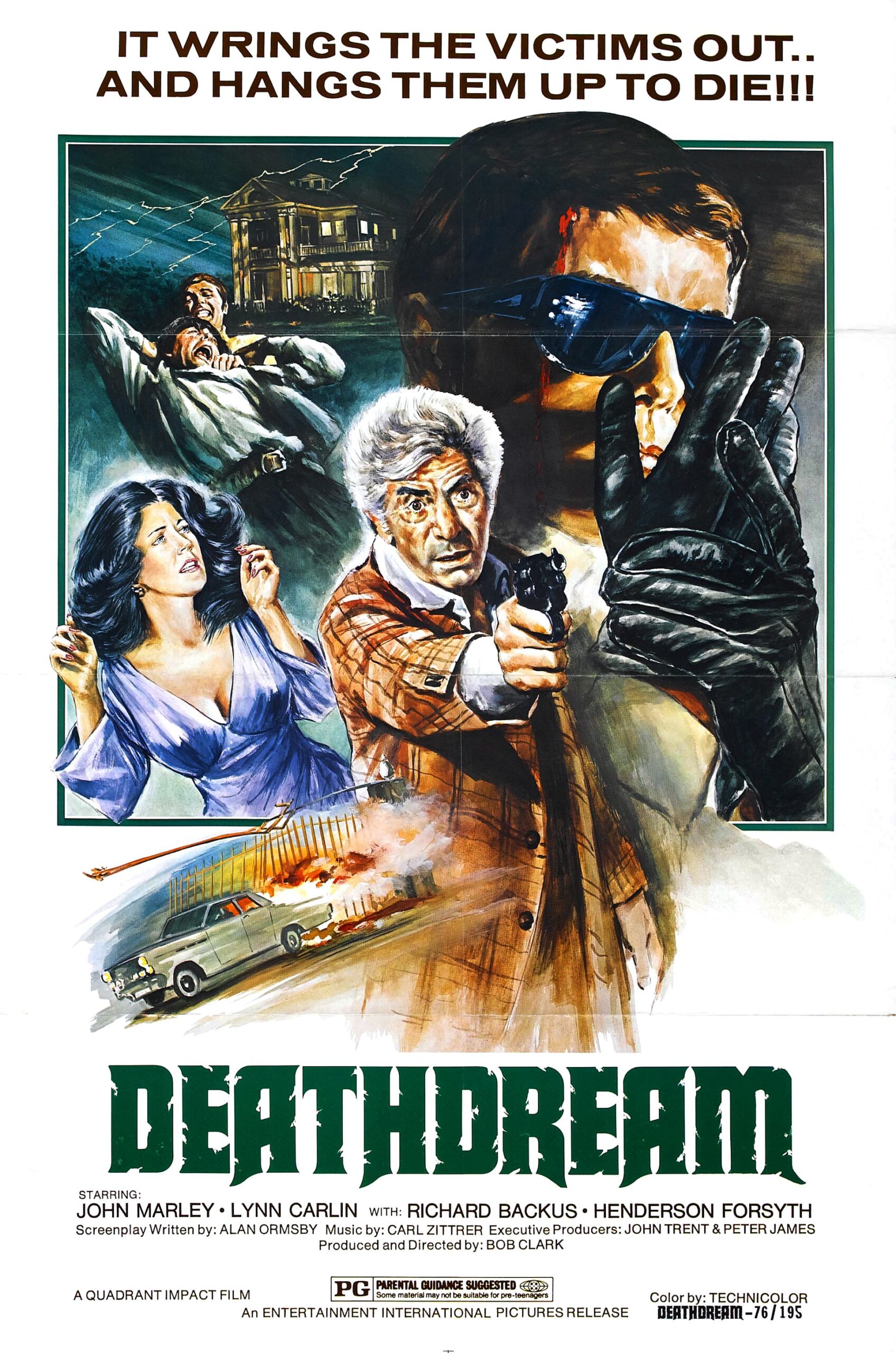
Deathdream, directed by the skilled Bob Clark, delves into the mysterious and spine-chilling aftermath of a soldier’s return home from the Vietnam War. This return was least expected as he was presumed dead. This compelling horror tale, renowned for its ability to conjure an atmosphere of unshakeable dread, has not only left an indelible mark on the genre but also succeeded in striking a chord with its audience.
Its impactful narrative, delivered with nuanced storytelling, has found a place in the heart of the Reddit community, with one user expressing admiration for the film by saying,
“I really love Deathdream…I rarely hear it discussed.”
At its core, Deathdream narrates an absorbing tale of a soldier who comes home to his loved ones under an umbrella of uncertainty and cryptic occurrences. Richard Backus stars as the young soldier whose unexpected arrival prompts a series of eerie and chilling events that unveil a drastically altered persona and disturbing behavior.
The unsettling narrative, combined with Clark’s skillful direction, transcends typical horror tropes to touch upon deeper themes like the psychological impacts of war and the family’s struggle to accept the grim reality of their loved one’s transformation.
The film’s allure is further enhanced by the phenomenal performances of the cast, led by Backus, whose portrayal of the troubled soldier is as enigmatic as it is frightening. His haunting presence forms the backbone of the narrative, guiding the audience through an unnerving journey filled with suspense and terror.
What distinguishes Deathdream from other era horror films is its successful fusion of traditional horror elements with an emotionally resonant storyline. It skilfully explores the profound effect of war on soldiers and their families, offering an undercurrent of social commentary beneath its horror veneer.
Its exploration of grief, loss, and the harsh realities of war provides a depth that elevates the film from a simple fright-fest to a poignant exploration of human suffering.
However, despite its compelling narrative and thoughtful themes, Deathdream remains somewhat hidden in the annals of horror cinema, often overlooked in favor of more mainstream offerings. But for those who have discovered this lesser-known gem, it has resonated powerfully. As evident from the Reddit community’s appreciation, this film fascinates its audience, stirring conversations around its nuanced narrative and emotional depth long after the credits roll.
As more film enthusiasts discover and discuss Deathdream, its legacy as a unique and impactful horror tale continues to grow, underscoring its significance within the genre.
The Driver (1978): An Elegant Symphony of Car Chases Captivating Audiences Across Generations
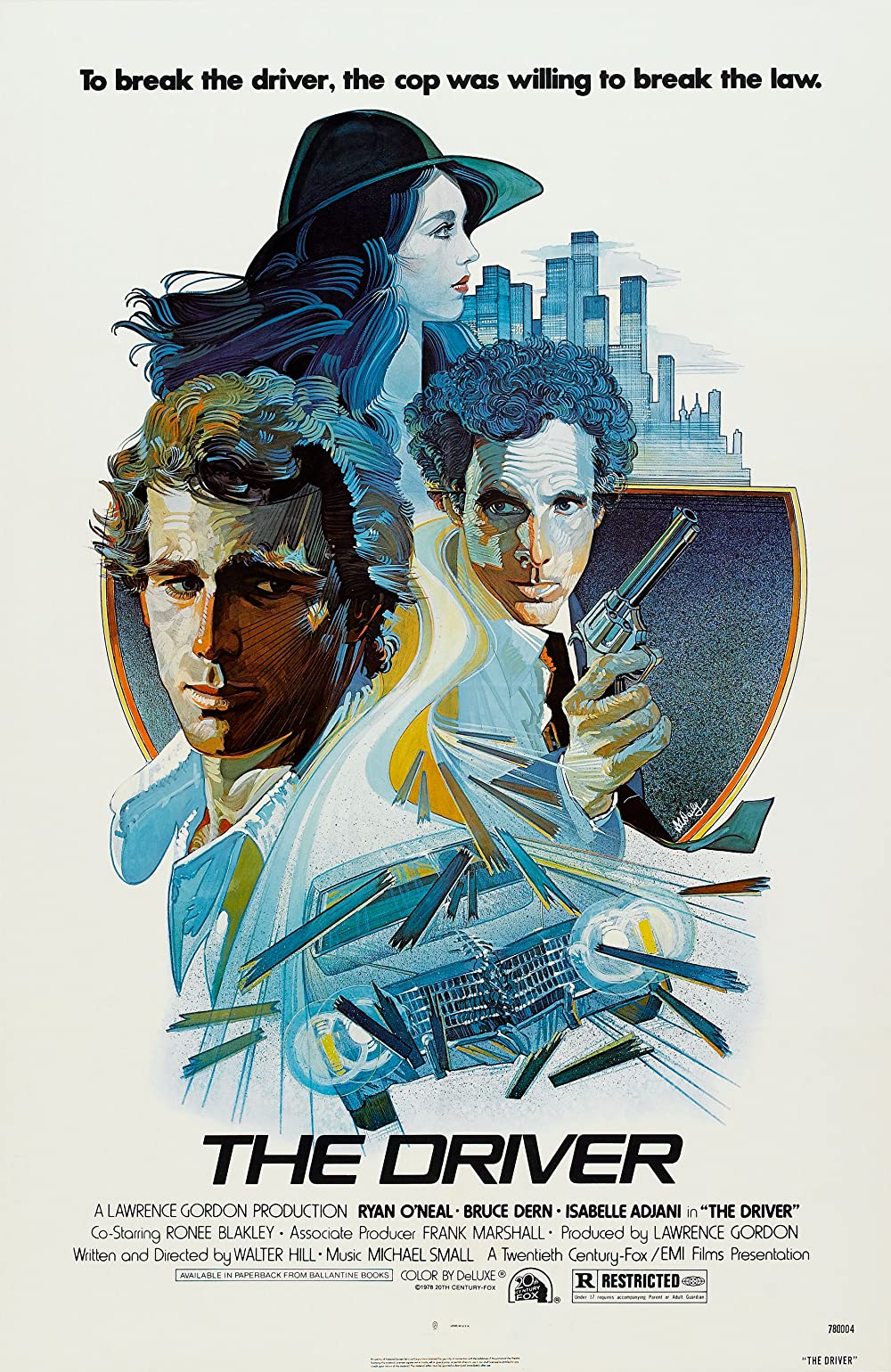
Crafted by the expert hands of Walter Hill, The Driver is a stylishly immersive film that weaves an adrenaline-pumping tale centered around an enigmatic character, played by Ryan O’Neal. This professional getaway driver’s proficiency in steering through the most constricted spaces presents an enticing narrative that has endured time.
The film’s compelling narrative and innovative action sequences have captivated audiences and critics alike, earning it a spot among the classics of action cinema. Reddit users have applauded its influential storytelling and recognized its significant impact on contemporary action films, particularly highlighting its role in inspiring modern classics like the Ryan Gosling-led Drive.
The Driver unfolds a gripping story of high-speed chases, cunning maneuvers, and edgy encounters, all anchored by O’Neal’s magnetic performance as the protagonist. His portrayal of a man of few words, whose actions echo louder, takes viewers on a thrilling journey where speed, precision, and fearlessness reign supreme.
As he navigates the dangerous world of crime, his exceptional skills as a driver make him a valuable asset and a target, painting a vivid picture of an adrenaline-fueled life on the edge.
One of the distinguishing features of The Driver is its pioneering approach to choreographing car chases. Walter Hill’s direction transforms the concept of a car chase into an elegant, high-stakes ballet of burning rubber and roaring engines. The intricate staging of these sequences and masterful cinematography create a visual spectacle that adds a layer of excitement to the film’s narrative.
This innovative approach to action scenes has since become a benchmark in the genre, influencing a generation of filmmakers and setting a new standard for vehicular action sequences.
In addition to its visual grandeur, The Driver’s appeal is further amplified by its sharp narrative that cleverly balances tension with moments of quiet intensity. The film’s screenplay offers a rich exploration of its central character, painting a portrait of a man whose life is defined by his unwavering commitment to his risky profession.
The narrative carefully unravels his complex personality, revealing an intriguing character study beneath the exhilarating car chases.
Despite the passing of decades, The Driver’s allure remains intact, continually drawing new audiences and rekindling the fascination of those who’ve seen it before. Reddit users, a community known for candid discussions and discerning cinematic taste, have hailed the film as a milestone in action cinema. The recognition of its profound impact on modern action films is a testament to its lasting influence.
As one Reddit user aptly wrote, “The Driver is my favorite movie from the 70’s, one of my favorites of all time really, wish it got a bit more love,” underlining its enduring appeal.
The Driver is more than a thrilling rollercoaster of high-speed chases. It’s a testament to the power of innovative filmmaking, leaving a lasting impact that continues to inspire modern cinema. Its elegant symphony of car chases, backed by a rich narrative and a charismatic performance from Ryan O’Neal, make it a cinematic treasure that resonates powerfully with both old and new audiences.
The China Syndrome (1979): A Riveting Thriller with Sociopolitical Undertones
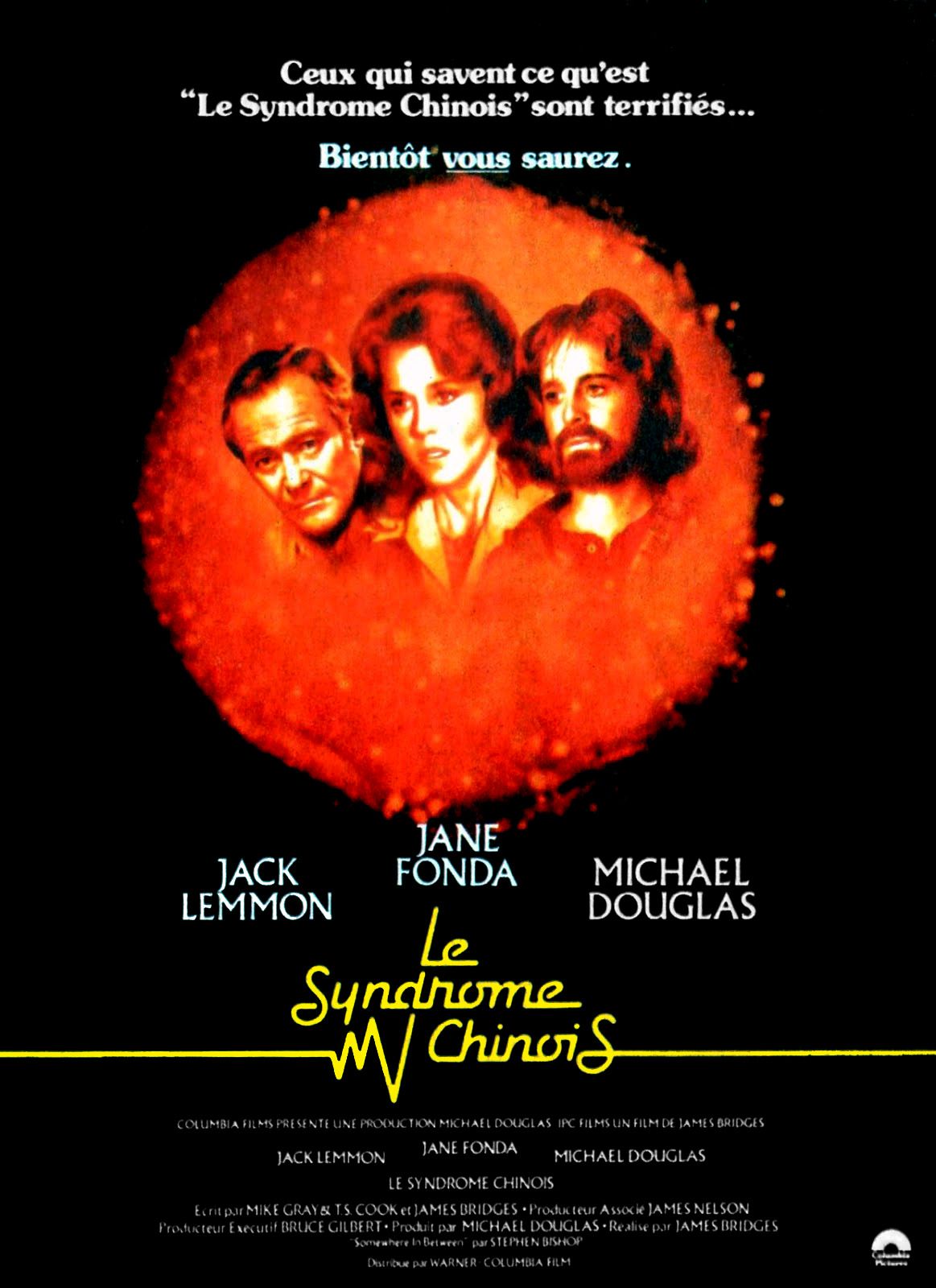
The China Syndrome, an arresting cinematic piece directed by James Bridges, serves as a penetrating exploration of a potential nuclear disaster and the subsequent corporate cover-up. With stellar performances from a power-packed cast, including Jane Fonda and Michael Douglas, the film masterfully unravels a terrifying narrative at the intersection of corporate greed and the potential for devastating environmental consequences.
Its relevance transcends the era in which it was produced, providing a chilling commentary on social and political issues that persist to this day. Many Reddit users have admired the movie, appreciating its gripping narrative and socially pertinent themes.
One particular user underscored its importance and storytelling prowess, stating, “a disaster film that often goes unnoticed…but it does have an amazing story.”
Set against a nuclear power plant backdrop, The China Syndrome’s plot hinges on a terrifying premise – an impending nuclear disaster. The narrative follows television reporter Kimberly Wells, portrayed with a palpable intensity by Jane Fonda and her cameraman Richard Adams, played by a captivating Michael Douglas, as they investigate a series of suspicious activities at the power plant.
As they unravel a web of corporate deceit and dangerous negligence, the movie escalates into an electrifying crescendo of suspense. It maintains a nail-biting tension that keeps viewers on the edge of their seats.
Beyond the surface-level thrill, The China Syndrome delves into deeper sociopolitical themes, raising questions about corporate responsibility, environmental protection, and mass media ethics. By subtly weaving these themes into its narrative, the film elevates itself from a conventional disaster movie to a potent exploration of societal issues. It turns a cinematic lens onto the real-world implications of corporate malfeasance and nuclear accidents.
The film’s performances further enhance the narrative’s intensity. In her role as Kimberly Wells, Jane Fonda embodies the tenacity and drive of investigative journalism, presenting a compelling character who navigates her way through a world shrouded in secrecy and deceit. Like Richard Adams, Michael Douglas provides a compelling counterpoint, offering a poignant portrayal of an ordinary man thrown into extraordinary circumstances.
The China Syndrome also boasts technical excellence in its production, cinematography, and sound design. The representation of the power plant is meticulous and realistically ominous, amplifying the sense of dread. The cinematography effectively captures the tension-filled atmosphere, with dramatic shots and angles heightening the sense of crisis.
The carefully calibrated sound design further accentuates the on-screen tension, making the audience feel part of the unfolding disaster.
The China Syndrome’s legacy continues to resonate more than four decades after its release. It’s more than just a disaster film; it’s a cautionary tale highlighting the potential pitfalls of unchecked corporate power and environmental disregard. The Reddit user noted that the film “often goes unnoticed” but undoubtedly “has an amazing story.”
The China Syndrome serves as a crucial reminder of the power of cinema to incite dialogue and reflection on pressing societal issues, echoing a resonance that is deeply felt by its audience across generations.
Paper Moon (1973): A Heartwarming Comedy About Father-Daughter Duo
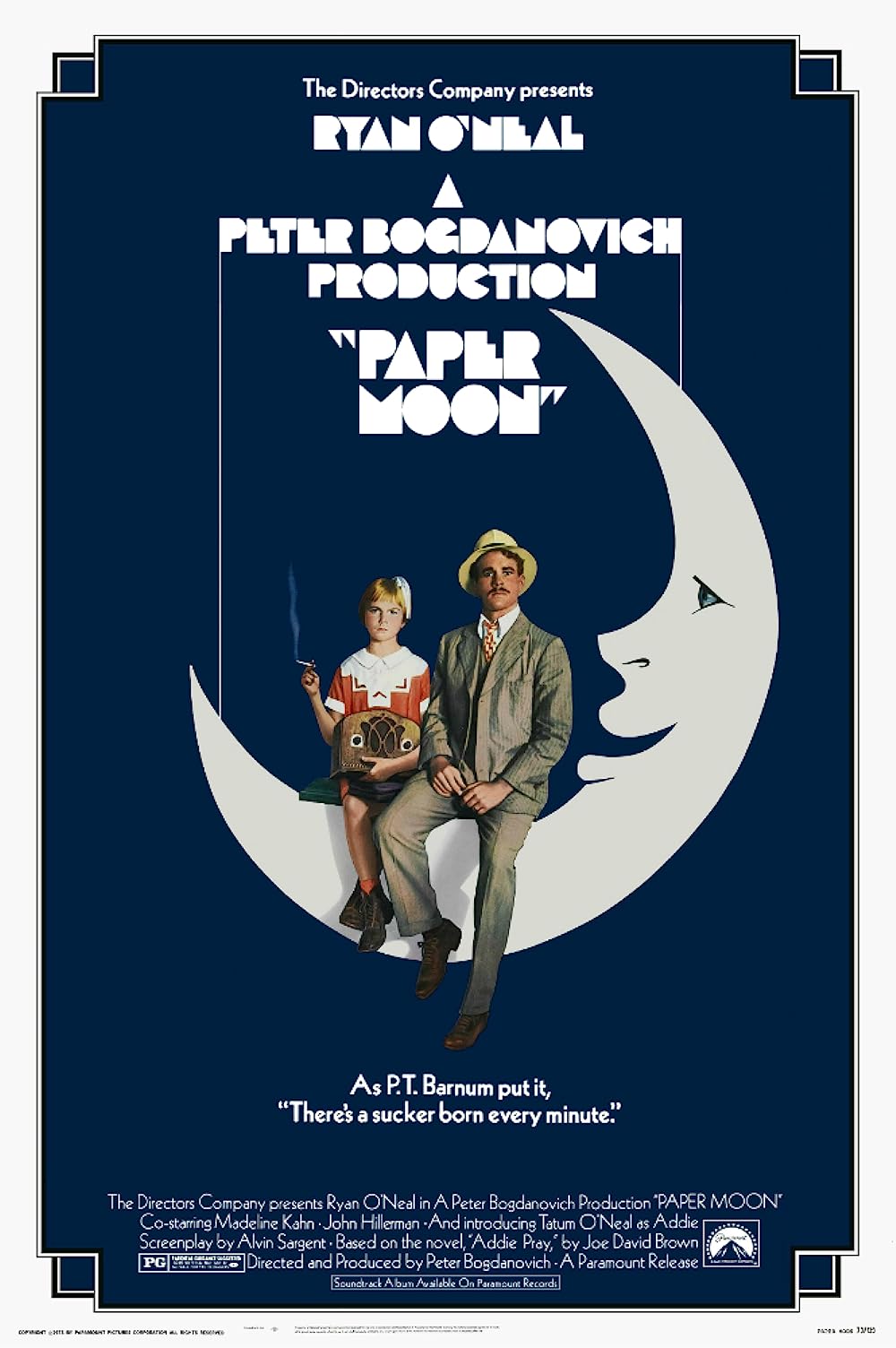
Set against the backdrop of the Great Depression, Peter Bogdanovich’s Paper Moon weaves a charming narrative that serves as a testament to the enduring human spirit. The film combines real-life father-daughter duo Ryan and Tatum O’Neal in an engaging story filled with wit, humor, and genuine emotion. This delightful tale of partnership and resilience is woven into a cinematic tapestry of poignant themes and unforgettable performances.
This sentiment is echoed by members of the online Reddit community, where one particular user lauds the film as a “frequently overlooked gem.”
Bogdanovich, known for his unique storytelling techniques, crafts a rich and textured narrative that delves into the lives of a con man and an orphaned girl who team up to form an unlikely duo. The film thrives on its comedic moments. Yet the screenplay deftly intertwines moments of raw emotion and vulnerability, painting a deeply human portrait of two individuals who discover an uncommon bond that strengthens their resolve to survive despite their differences and the challenges they face.
Ryan O’Neal stars as Moses Pray, a smooth-talking con artist who has mastered the art of deception and charm. He is unexpectedly paired with an intelligent nine-year-old girl, Addie Loggins, portrayed by Tatum O’Neal, following her mother’s demise.
The pair embarks on an adventurous journey through the American Midwest, engaging in small-time cons and grifting schemes. What starts as a reluctant partnership slowly evolves into a deep-rooted connection, an exploration of friendship and family that transcends the traditional definitions of these relationships.
Tatum O’Neal’s performance, in particular, is a noteworthy aspect of the film. At just ten years old during filming, she delivered a mature and nuanced performance that won her the Academy Award for Best Supporting Actress, making her the youngest person ever to win an Oscar in a competitive category.
Her portrayal of Addie is both endearing and complex, blending a child’s innocence with hard-edged practicality born of the era’s harsh realities.
Ryan O’Neal’s depiction of Moses is equally impressive. His character is morally ambiguous, a charismatic trickster operating on the law’s fringes. Yet, Ryan’s portrayal injects Moses with relatable humanity, displaying glimpses of vulnerability beneath the grifter’s hardened exterior.
The real-life father-daughter dynamic between Ryan and Tatum contributes to the film’s palpable chemistry and emotional depth.
The film’s setting is also a character in itself, offering a stark yet beautifully captured glimpse of America during the Great Depression. Bogdanovich uses the historical context to amplify the themes of survival and resilience, showcasing the characters’ ingenuity and adaptability in facing adversity.
With its unique blend of comedy, drama, and compelling characters, Paper Moon is a testament to Bogdanovich’s creative genius. Its impact extends beyond its initial release, and its enduring popularity is exemplified by its passionate fanbase.
One Redditor’s praise as a “frequently overlooked gem” speaks to its enduring resonance. This film continues to captivate audiences with its heartfelt depiction of an unconventional partnership in trying times.
The Parallax View (1974): A Chilling Tale of Conspiracy
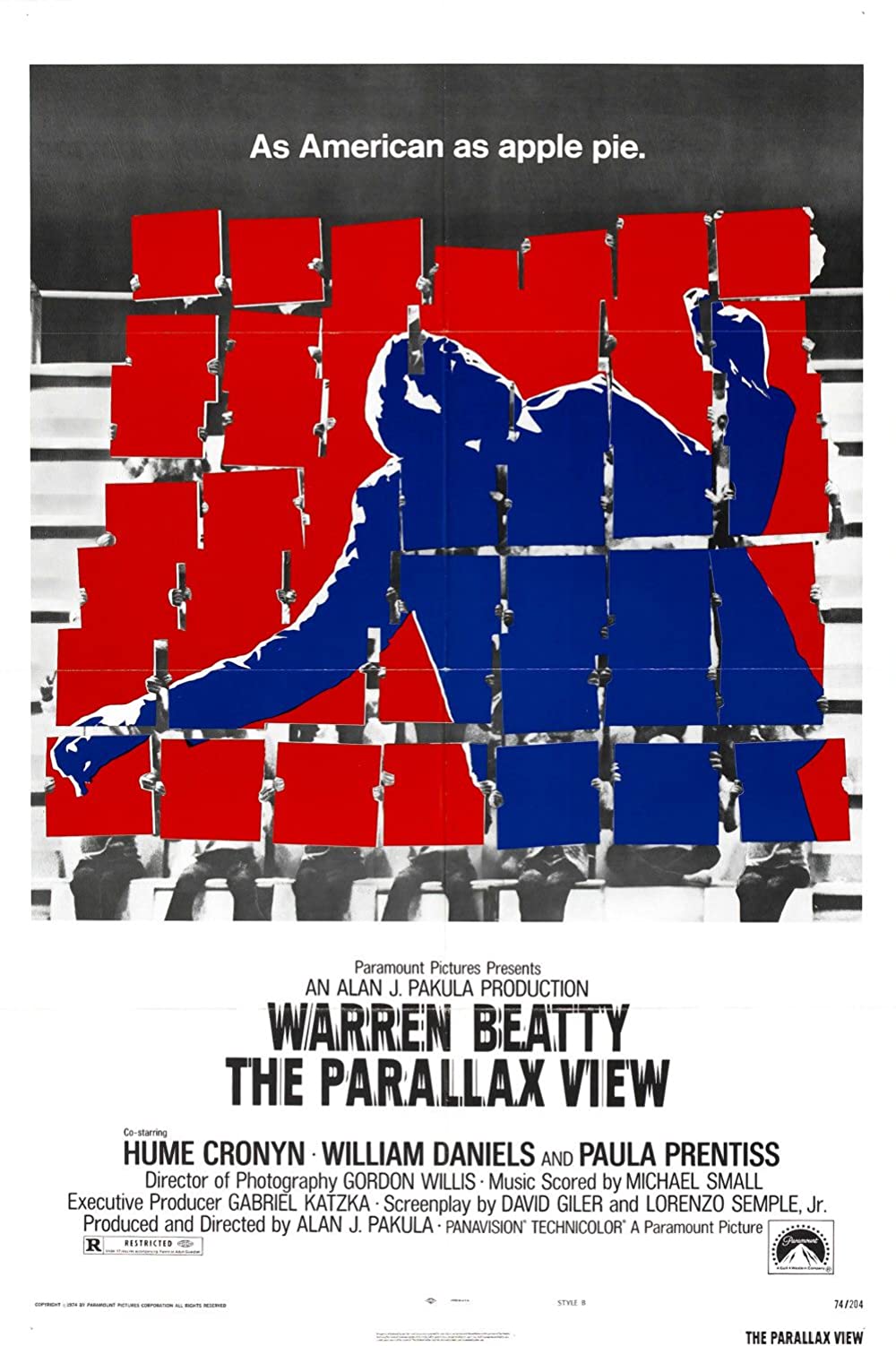
The Parallax View, an outstanding thriller directed by the visionary Alan J. Pakula, deftly exposes a vast, labyrinthine conspiracy shrouding a political assassination. Lauded for its engaging plot and spectacular performances, the film’s aura of suspense and unease leaves a profound and indelible impression on audiences.
The Reddit community recognizes this cinematic masterpiece as “an underrated gem,” a testament to the film’s enduring appeal and its significant contribution to the thriller genre.
Set in the tumultuous political climate of the 1970s, The Parallax View pulls viewers into a web of conspiracy, power, and manipulation. The narrative follows Joe Frady, a tenacious journalist portrayed by the charismatic Warren Beatty. After a political figure is assassinated, Frady starts believing there’s more to the story when his colleagues die mysteriously.
His relentless pursuit of truth leads him to the heart of the sinister Parallax Corporation, where he discovers a far-reaching conspiracy that shakes the foundations of his beliefs.
Pakula’s directorial prowess is evident in the intricate construction of the plot. The storyline, while complex, unfolds with a measured pace, ensuring the viewer remains engaged and invested in Frady’s quest for truth. Pakula’s ability to sustain tension throughout the film is commendable, expertly leveraging the medium’s visual and auditory elements to create a pervasive sense of dread and paranoia that permeates every scene.
The film is also elevated by Beatty’s gripping portrayal of Joe Frady. Beatty’s performance is layered and nuanced, balancing his character’s bold courage and creeping vulnerability. As Frady delves deeper into the conspiracy, Beatty brings a palpable sense of urgency and desperation to the role, masterfully capturing his character’s growing obsession and increasing isolation.
The supporting cast, including Paula Prentiss, William Daniels, and Hume Cronyn, provide compelling performances that enrich the narrative. While on the periphery of the main plot, their characters add depth and complexity to the story, painting a broader picture of the shadowy world in which Frady finds himself.
The film’s cinematography and music score, too, play significant roles in setting the ominous tone of the movie. Gordon Willis’s camera work, characterized by stark contrasts and unusual angles, augments the sense of unease and mystery, while Michael Small’s haunting score intensifies the atmosphere of suspense.
In its thematic depth, The Parallax View grapples with the notion of power and the ease with which information can be manipulated to serve nefarious ends. The film’s societal and political undertones make it a thought-provoking piece of cinema that resonates well beyond its runtime.
The admiration of Reddit users for The Parallax View, describing it as “an underrated gem,” is a testimony to the film’s lasting legacy. It stands as a benchmark in political thrillers, its captivating narrative, and engaging performances continue to mesmerize viewers, leaving a profound and unforgettable impression.
The film’s complex layers unfold anew with each viewing, affirming The Parallax View as an enduring classic that continues to engage, thrill, and provoke thought among audiences.
A Woman Under the Influence (1974): An Insightful Portrayal of Mental Health
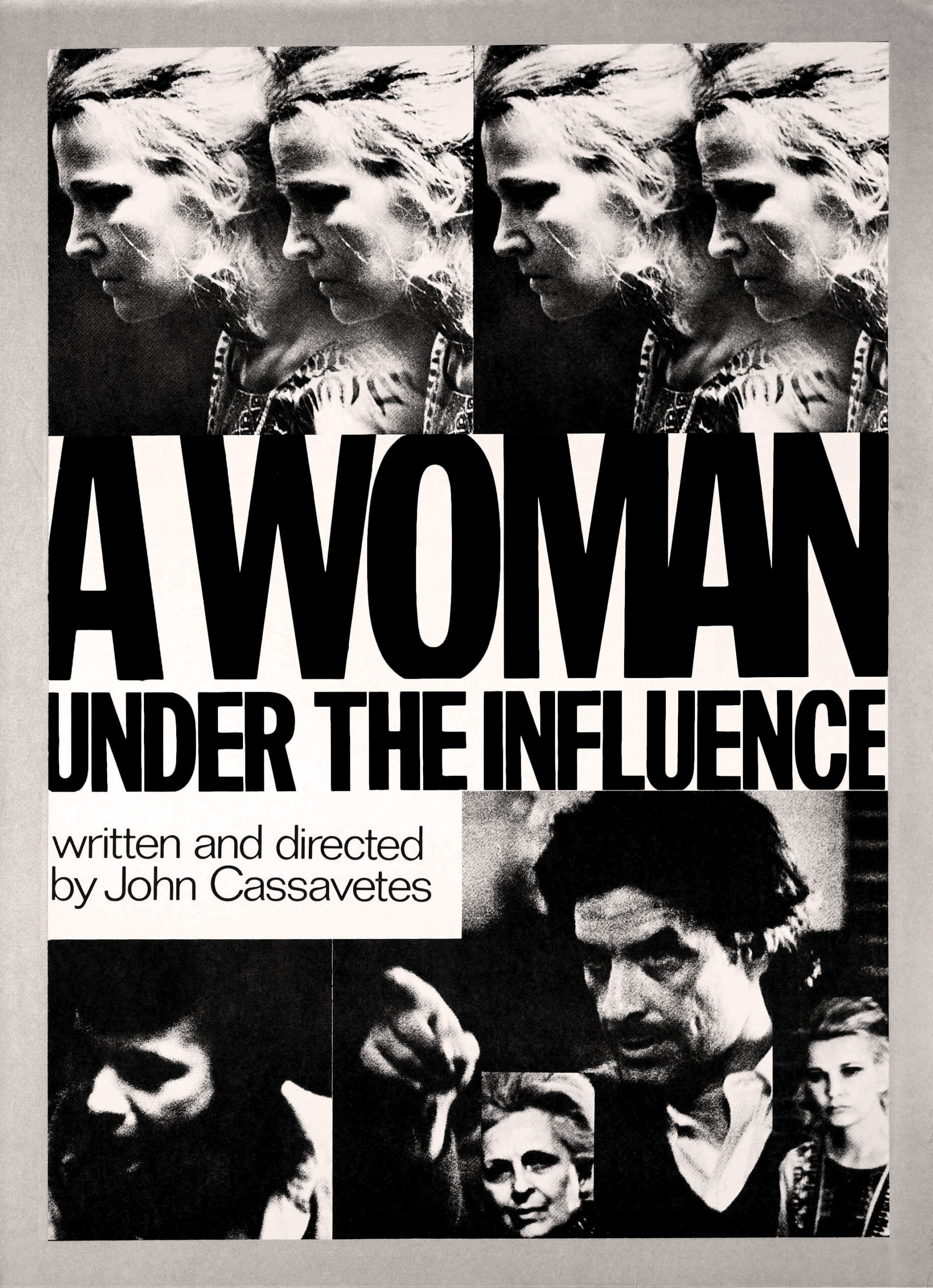
A Woman Under the Influence, a raw and intense drama directed by renowned filmmaker John Cassavetes, provides a heartfelt and profound exploration of a woman’s struggle with mental illness. This film is a testament to Gena Rowlands’ incredible acting prowess, delivering a captivating and emotionally resonant performance.
Celebrated by Reddit users and cinema enthusiasts, the film bravely navigates the intricate labyrinth of themes such as marriage, parenthood, and toxic masculinity, making it an enduring piece of American cinema.
In this compelling cinematic narrative, Cassavetes unflinchingly chronicles the life of Mabel Longhetti, portrayed by Rowlands, as she grapples with the effects of an unspecified mental illness. The portrayal is hauntingly real, and Rowlands plunges into the depths of her character, drawing out Mabel’s fragility, unpredictability, and underlying strength with skillful mastery.
Her performance is both arresting and unforgettable, anchoring the film’s narrative with its unyielding intensity.
The genius of Cassavetes’ direction is witnessed in his commitment to the authenticity of Mabel’s experience. He refuses to relinquish the harsh realities of mental illness, presenting them in their raw, unfiltered form. This unapologetic authenticity contributes to the film’s deep emotional resonance, making it a challenging yet important viewing experience.
At its core, A Woman Under the Influence explores a marriage under strain. The film’s beating heart is the relationship between Mabel and her husband, Nick (Peter Falk). Falk delivers a powerhouse performance, embodying a man torn between his love for his wife and the societal expectations of masculinity.
The film sheds light on the complexities of their marriage, highlighting how mental illness and ingrained gender roles impact their relationship.
In addition to its focus on marriage, the film also delves into the complexities of parenthood. Mabel’s interactions with her children are among the film’s most poignant moments, revealing her deep love for them and her desperate attempts to fulfill her role as a mother amidst her mental health struggles. Cassavetes skilfully highlights the family’s dynamic, adding further depth to the narrative.
Cassavetes also uses the film as a platform to critique toxic masculinity. He portrays Nick as a man confined and shaped by societal expectations of manhood. This is evidenced in his difficulty expressing emotion and insistence on “fixing” Mabel himself. The director’s subtle yet pointed exploration of this theme enhances the film’s societal relevance and impact.
Praised by Reddit users for its unflinching depiction of mental illness and its nuanced exploration of marriage, parenthood, and toxic masculinity, A Woman Under the Influence remains as relevant today as it was upon its release. The film’s poignant narrative, combined with the powerful performances by Rowlands and Falk, leaves a lasting impression on viewers, ensuring its enduring significance in the annals of American cinema.
Through this masterpiece, Cassavetes continues to spark vital conversations around mental health, challenging societal norms and stereotypes.
Sleuth (1972): An Intriguing Battle of Wits
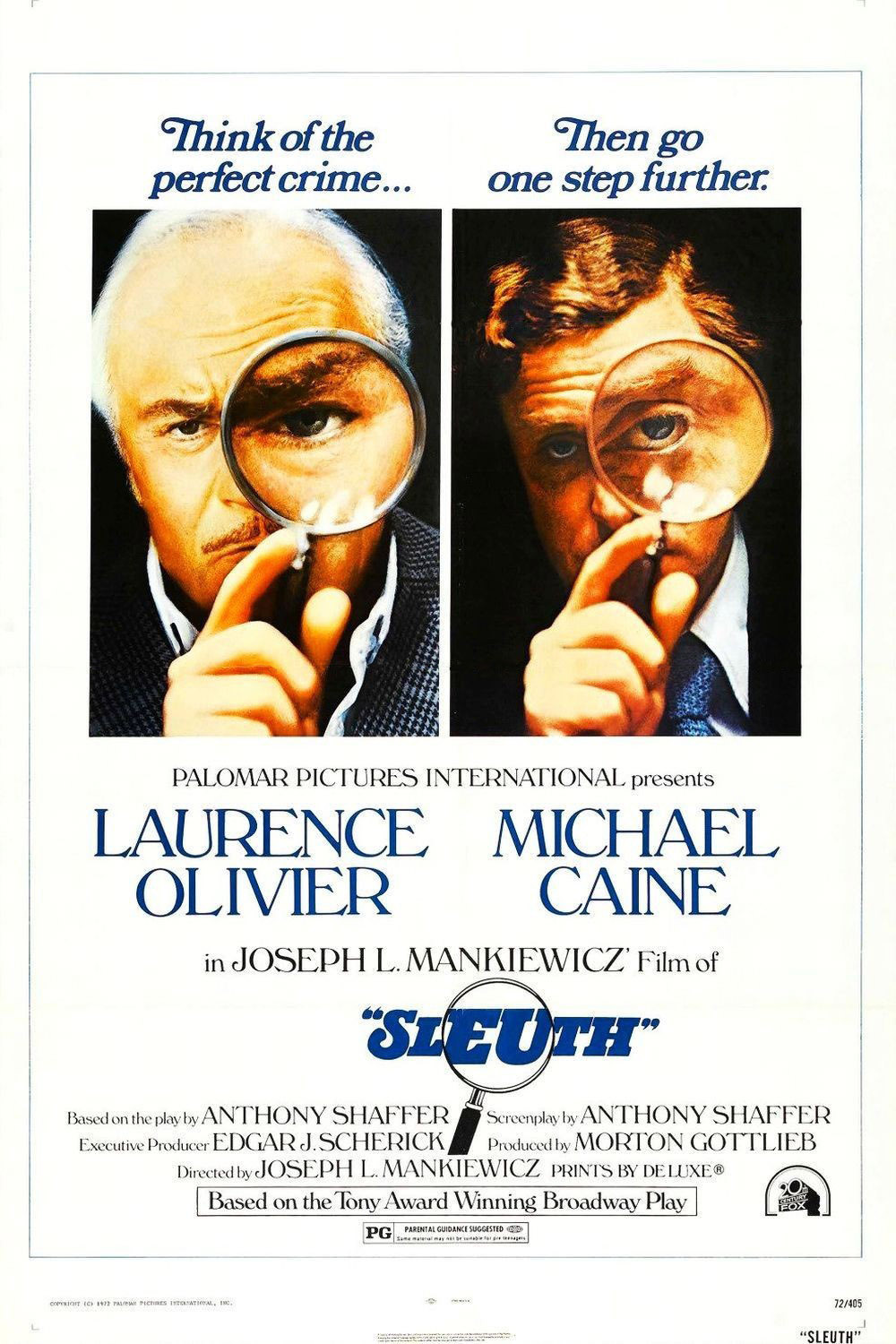
Joseph L. Mankiewicz’s Sleuth, a screen adaptation of Anthony Shaffer’s renowned stage play, delivers a high-stakes psychological thriller in which two remarkable actors – the legendary Laurence Olivier and the ever-versatile Michael Caine – engage in a mesmerizing battle of wits and deception. The film holds a special place in the hearts of Reddit users, with its intricate plot and outstanding performances making it a captivating viewing experience.
One user succinctly puts it, “Sleuth with Laurence Olivier and Michael Caine was great…And it’s directed by Joseph Mankiewicz,” a testament to the movie’s enduring appeal.
Joseph L. Mankiewicz, already well-known for his directorial prowess in movies like All About Eve and Cleopatra, showcased his talent in Sleuth, meticulously adapting the original play’s intense drama for the big screen. Mankiewicz’s acute understanding of narrative structure and character development shines through in this thriller. He weaves an intricate plot with surprise twists and turns that keep the audience on the edge of their seats.
At the core of Sleuth’s brilliance is the mental tug-of-war between Laurence Olivier’s Andrew Wyke and Michael Caine’s Milo Tindle, two characters locked in a game of cunning and manipulation. With his theatrical background, Olivier brings a grandiloquent flair to the character of Wyke, a wealthy and eccentric author with a passion for elaborate games.
In contrast, Caine’s Tindle is a hairdresser-turned-lover of Wyke’s wife, desperate to prove his mettle against Wyke’s intellectual superiority. The chemistry between the two actors is electric, creating a tense and intriguing atmosphere that pervades the entire film.
Reddit users have a particular affinity for Sleuth, appreciating the suspenseful cat-and-mouse game that forms the crux of the story. The film is often described as a compelling watch, captivating viewers with its engaging narrative and superb performances. Mankiewicz’s deft direction, combined with Olivier and Caine’s acting prowess, creates a film that is as mentally stimulating as it is emotionally engaging.
One Reddit user’s remark, “Sleuth with Laurence Olivier and Michael Caine was great…And it’s directed by Joseph Mankiewicz,” underscores the movie’s exceptional quality and the deep impression it has left on viewers.
In conclusion, Joseph L. Mankiewicz’s Sleuth, based on Anthony Shaffer’s original play, stands out as a brilliant example of a suspenseful, well-acted film that is a joy to watch. It stands the test of time due to its intelligent script, Mankiewicz’s skillful direction, and, above all, the exceptional performances of Olivier and Caine. Sleuth continues to captivate new audiences and maintain its allure for those who revisit it, further solidifying its place in the annals of film history.
This compilation underlines how the 1970s was an eclectic era in filmmaking, going beyond the commonly recognized classics. These Reddit-endorsed films are a testament to the decade’s unique storytelling capabilities and are worth revisiting.


